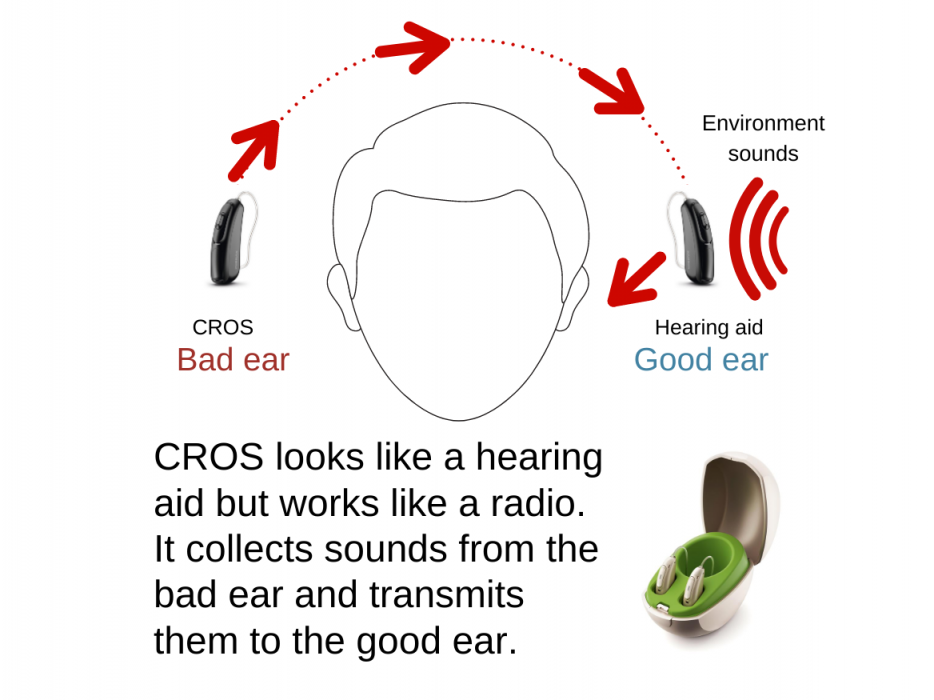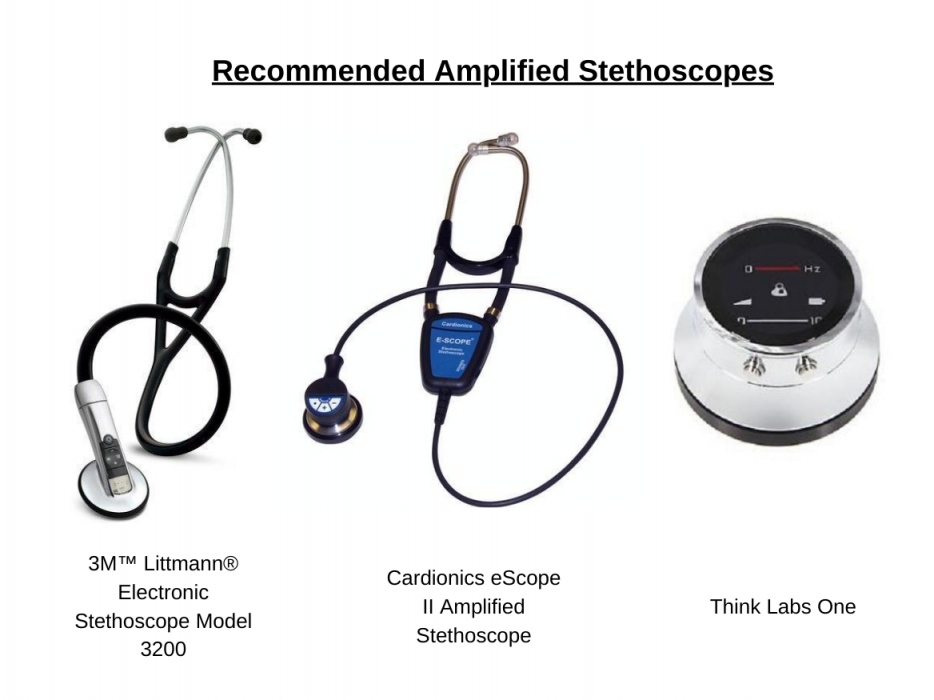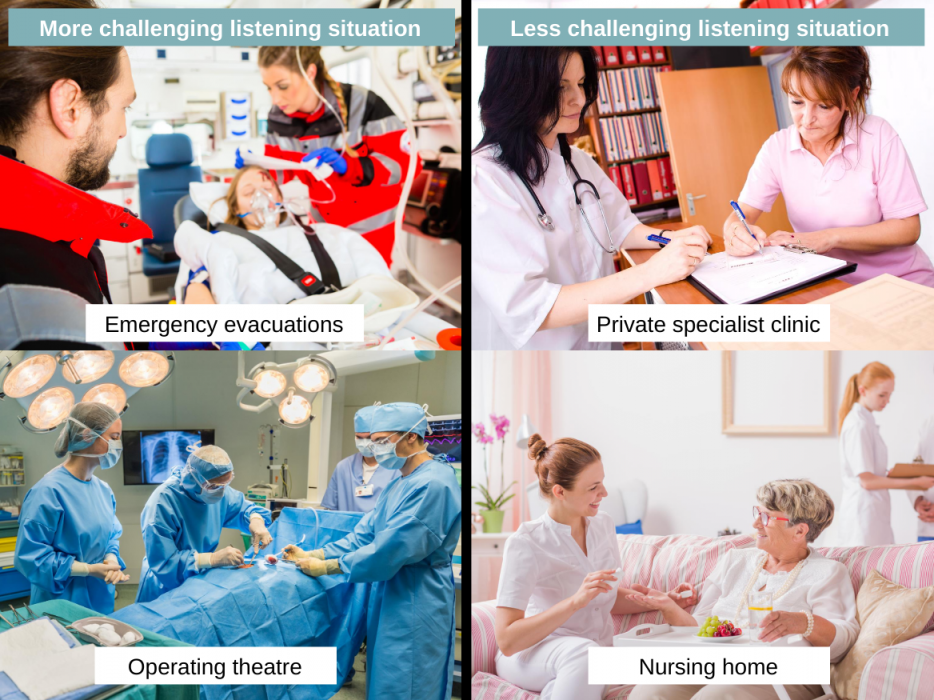Q&A: I have a hearing loss. Can I still work in healthcare?
Dear Audiologist,
My dream has always been to be a nurse. I have always been told that I have a big heart as I enjoy caring for family and friends when they are sick.
I intended to do a degree in nursing after Junior College. However, I lost partial hearing in my left ear just before the start of my A level examinations. There is no cure and the doctor says that I might lose complete hearing in my left ear in the future. I am afraid that with my hearing loss, I am unable to fulfil my dream of becoming a nurse.
My question is: can I still pursue nursing as a career or should I reconsider my career choice? Are there any other nurses or healthcare professionals like me?
Thank you,
Tasha
Dear Tasha
If it is your dream to be a nurse, just go for it! Your hearing loss shouldn’t stop you.
I personally know individuals from all sectors of healthcare with hearing loss. This includes nurses. Some of them have had hearing loss since childhood, some developed hearing loss over the course of their career. The challenges they face are different but all of them have learnt to adapt to work life with hearing loss.
Here are my tips for dealing with hearing loss if you want to work as a nurse or in any other healthcare sector:
1. Get prescribed hearing aids from your audiologist

Well-fitted hearing aids prescribed by a medical professional (audiologist) will maximize whatever hearing ability you have. When you lose hearing in one ear only, you will be able to use your good ear to hear clear speech, however you might struggle with:
(1) Figuring out the direction of sound.
(2) Hearing clear speech in noisy settings.
Not knowing the direction of sound is might be more manageable if you intend work in a small private clinic. However, if you intend to work in a larger hospital, there will be many listening challenges, such as, trying hear patients and colleagues over loud hearing hospital machinery. It might be tough to work effeciently without correcting your hearing loss.

If you have tried wearing hearing aids on your bad ear and you find that you are unable to pick up clear sounds, you might consider Contralateral Routing Of Signals (CROS) hearing aids. These are tiny devices that transmit sounds from the bad ear to the good ear, giving you two-sided hearing. This is shown to be highly effective in providing speech understanding in noisy environments and helping you figure out where the sound direction is coming from.
2. Use an amplified stethoscope at work

Amplified stethoscopes are electronic stethoscopes used by medical professionals with hearing loss. These special devices amplify internal body sounds while reducing environmental noise.
I recommend looking at the following stethoscopes:
– 3M™ Littmann® Electronic Stethoscope Model 3200
– Cardionics eScope II Amplified Stethoscope
– Think Labs One
You can read more about amplified stethoscopes at the Association of Medical Professionals with Hearing Losses (AMPHL).
Do note that if you will be using hearing aids with your stethoscope, it will require a lot of trial and error. While electronic stethoscopes are powerful and capable of amplifiying sounds between 20-200 Hz (standard heart beat is between 50-200 Hz), most hearing aids do not amplify frequencies below 250Hz. You will have to work with your audiologist to find the right solution for you.
3. Explore different nursing roles

Imagine working in an emergency care unit with patient alarm monitors going off every few minutes, you hear IV pumps beeping, colleagues and patients moving in and out, and yelling to communicate with each other. You are at your desk, trying to hear instructions over the phone. Now imagine hearing a patient’s IV pump beeping and having to go bed to bed to figure out which patient’s alarm went off.
Now imagine yourself in a specialist clinic or a nursing home. Everything is much calmer and quieter, patients wait quietly in the waiting room. You take your time to assist each patient one by one and are only focused on performing certain nursing duties instead of trying to multi-task everything at once. It sounds a lot easier doesn’t it?
You might find certain working environments more comfortable than others. I encourage your to explore as many nursing specialties as you can and find out what works best for you.
4. Learn positioning and communication strategies.

When it comes to communicating with hearing loss, remember:
(1) Reduce any noise that might interfere with speech
(2) Always have the person you are taking to sit next to your better hearing ear.
(3) Use both verbal and visual forms of communication.
You can also ask your audiologist for communication strategies that you can use at work.
5. Consider letting colleagues know about your hearing loss.

Sometimes sharing our struggles with colleagues with reduce the burden on ourselves. This also opens what the opportunity for you to discuss with your colleagues on what would be the best form of communication for you in noisy situtations.
This may include getting colleagues to speak claming and slowly, not shouting or to consider repeating, rephrasing or speaking shorter sentences.


